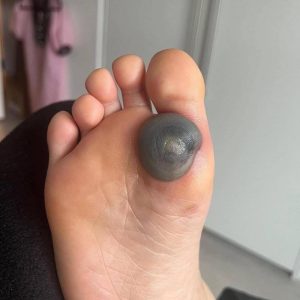The story centers on a childhood memory so vivid that the writer feels almost obligated to share it, especially because modern parents can hardly believe it happened. It serves as a reminder of how drastically parenting practices have changed over time, particularly in the realm of diaper care. Today’s parents are surrounded by conveniences—disposable diapers, wipes, odor-locking pails, and efficient washing machines—that make childcare feel more manageable. When older generations claim that younger parents “have it easy,” this memory helps illustrate why. Before conveniences existed, diapering required far more labor, patience, and physical effort, reflecting a version of parenting that was more hands-on, messy, and relentless. The post taps into nostalgia, but also astonishment, emphasizing a moment that now feels almost unthinkable in the context of modern hygiene standards and expectations.
In earlier decades, disposable diapers were not widespread, affordable, or even trusted by everyone, which meant cloth diapers were the universal standard. These cloth diapers demanded constant maintenance. Every soiled diaper had to be dealt with immediately because there were no large stacks of cheap, single-use replacements waiting in the nursery. This meant rinsing, scrubbing, and washing became unavoidable daily rituals. Parents of the time accepted this work as routine, without questioning whether there might be alternatives. Convenience did not factor into the equation, and there was little room for shortcuts. Each diaper represented another chore, another cycle of handling, cleaning, and preparing for reuse. This practical reality highlights how different parenting rhythms once were—more physical, time-consuming, and defined by repetition, without the disposable ease that today’s parents take for granted.
The memory centers specifically on the writer’s mother and her unflinching approach to diaper care. When a diaper was soiled, she acted immediately and without hesitation. Her process was simple but demanding: she rinsed the diaper directly in the toilet, wrung it out by hand, and dropped it into a waiting diaper pail until laundry day. This wasn’t a one-time act but a constant, daily pattern, repeated countless times. What seems messy, exhausting, and even unpleasant now was once treated as ordinary parental responsibility. The mother’s calm efficiency reflects the resilience and toughness of parents from that era. They didn’t have the luxury of feeling disgusted or overwhelmed—there was a job to do, and they did it. Her routine embodies a broader cultural attitude of the time: parenting required grit, and cleanliness was achieved through effort, not convenience.
To contemporary audiences, the idea of rinsing diapers in toilet water can sound shocking or even unsanitary, but at the time, it was a practical and logical solution. Toilets offered immediate access to water, allowed waste to be flushed away efficiently, and made the initial cleaning step manageable. The diaper pail served as a holding container, keeping odors contained until enough diapers had accumulated for a full wash—usually done in a washing machine that lacked the advanced features modern appliances offer. This wasn’t considered strange or improper; it was simply the most effective method available. Standards and expectations around hygiene have evolved, but so have the tools that make easier solutions possible. What feels wrong today was once normal, accepted, and even necessary in the absence of alternatives.
When the writer shares this memory with friends today, they are met with disbelief, laughter, and sometimes mild horror. Their reactions underscore just how far parenting has come in terms of technology, convenience, and cultural expectations. Modern parents have options—multiple brands of diapers, wipes designed for gentle cleaning, diaper disposal systems engineered to block odors, and washing machines that sanitize without much effort. While parenting itself remains emotionally and physically demanding, the tools have changed dramatically, reducing the physical labor once tied to even the simplest tasks. This contrast highlights the gap between generations and invites reflection on the privileges of modern life. It shows how progress can make once-routine tasks seem unimaginable.
Ultimately, the story isn’t meant to disgust or embarrass anyone. Its purpose is to honor the resilience, resourcefulness, and strength of earlier generations. Parents of the past had fewer choices, fewer shortcuts, and far more manual work, yet they handled their responsibilities with determination and even humor. By revisiting this memory, the writer pays tribute to those who came before—especially their mother—who navigated the challenges of parenting with creativity and stamina. The memory becomes more than a quirky anecdote; it turns into a gentle reminder of how much has changed and a testament to the people who managed hardship without complaint. It highlights that parenting has always been demanding, but the tools have evolved, making us more aware of the effort others once invested. Through this reflection, the writer connects past and present, inviting gratitude for modern conveniences and admiration for the endurance of those who lived without them.





